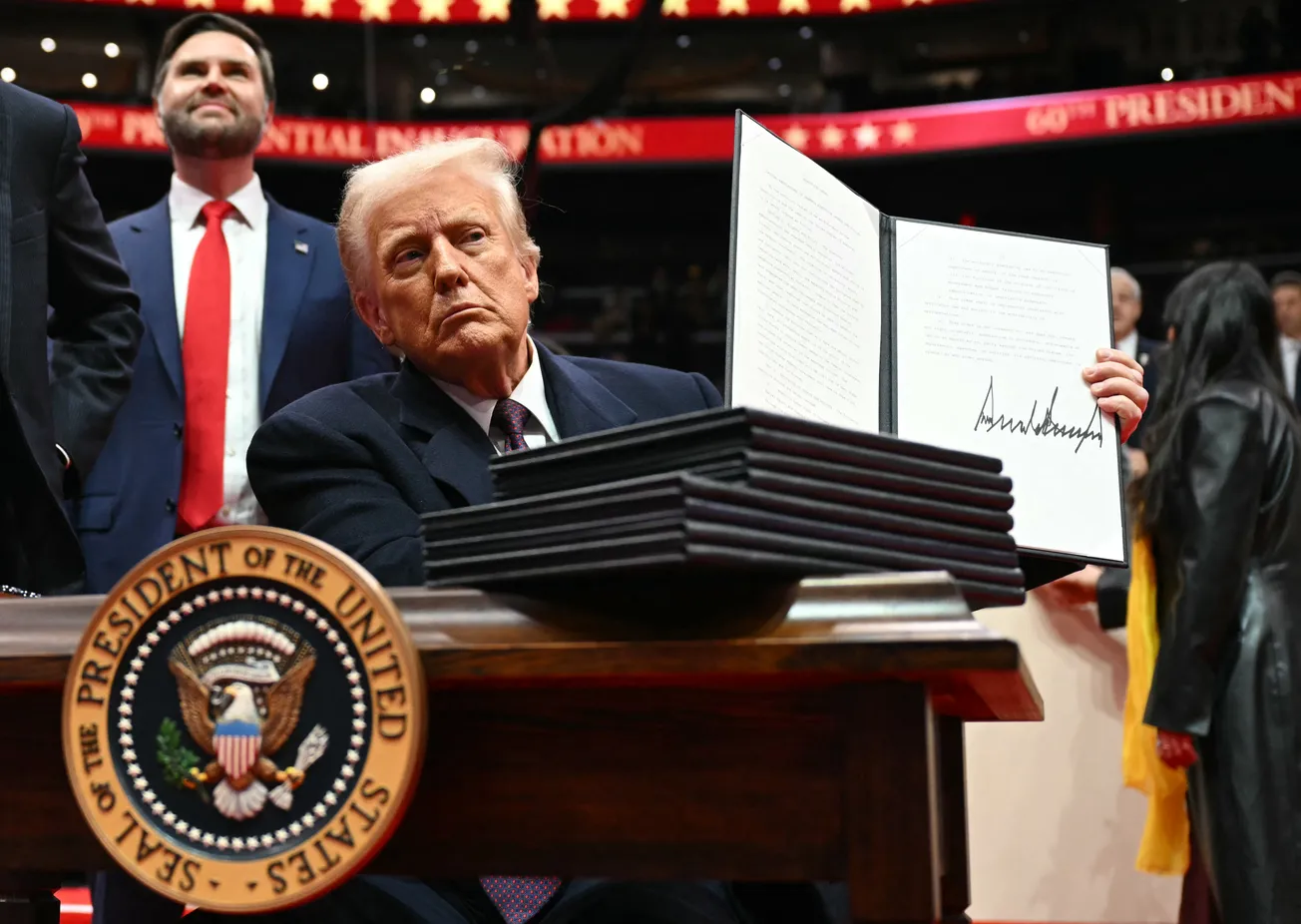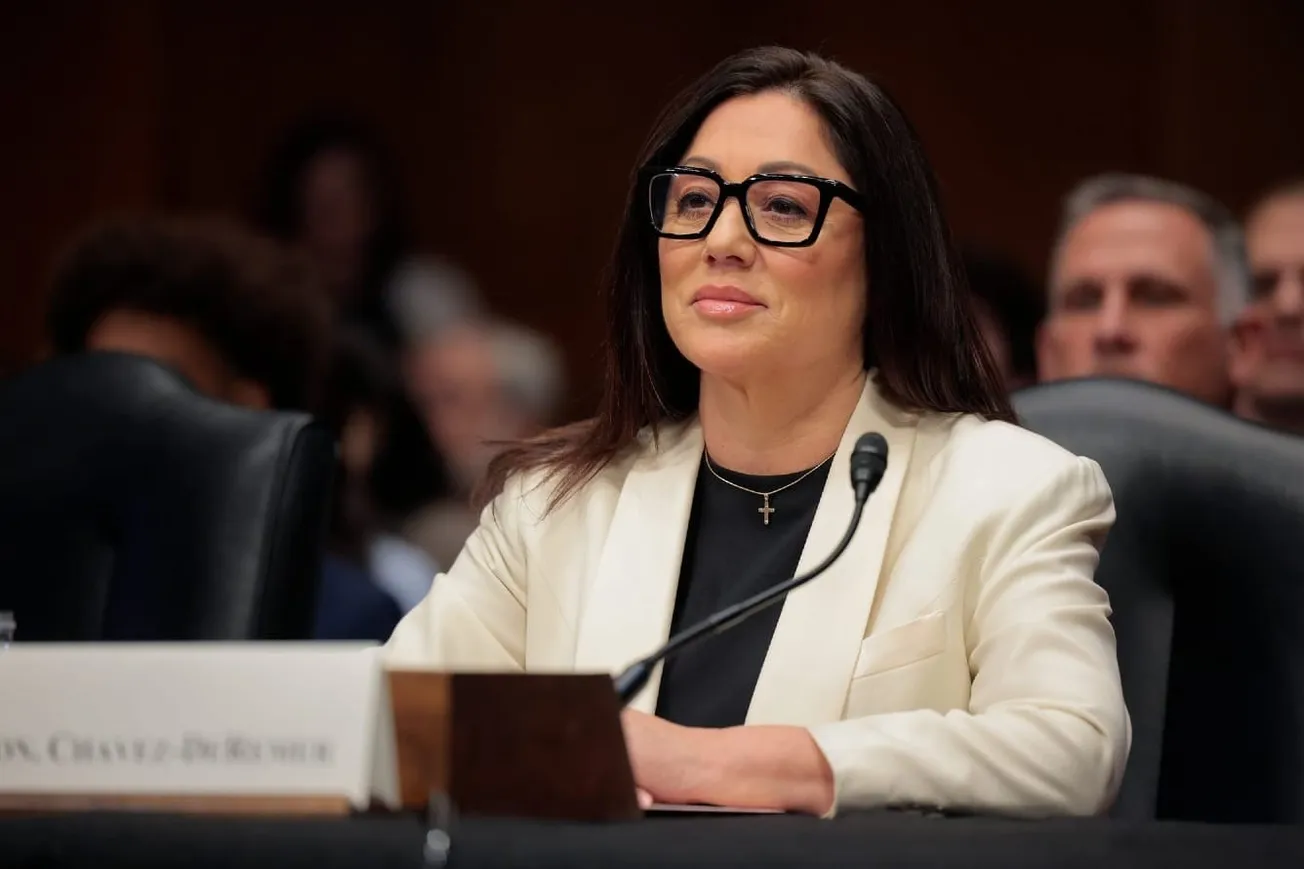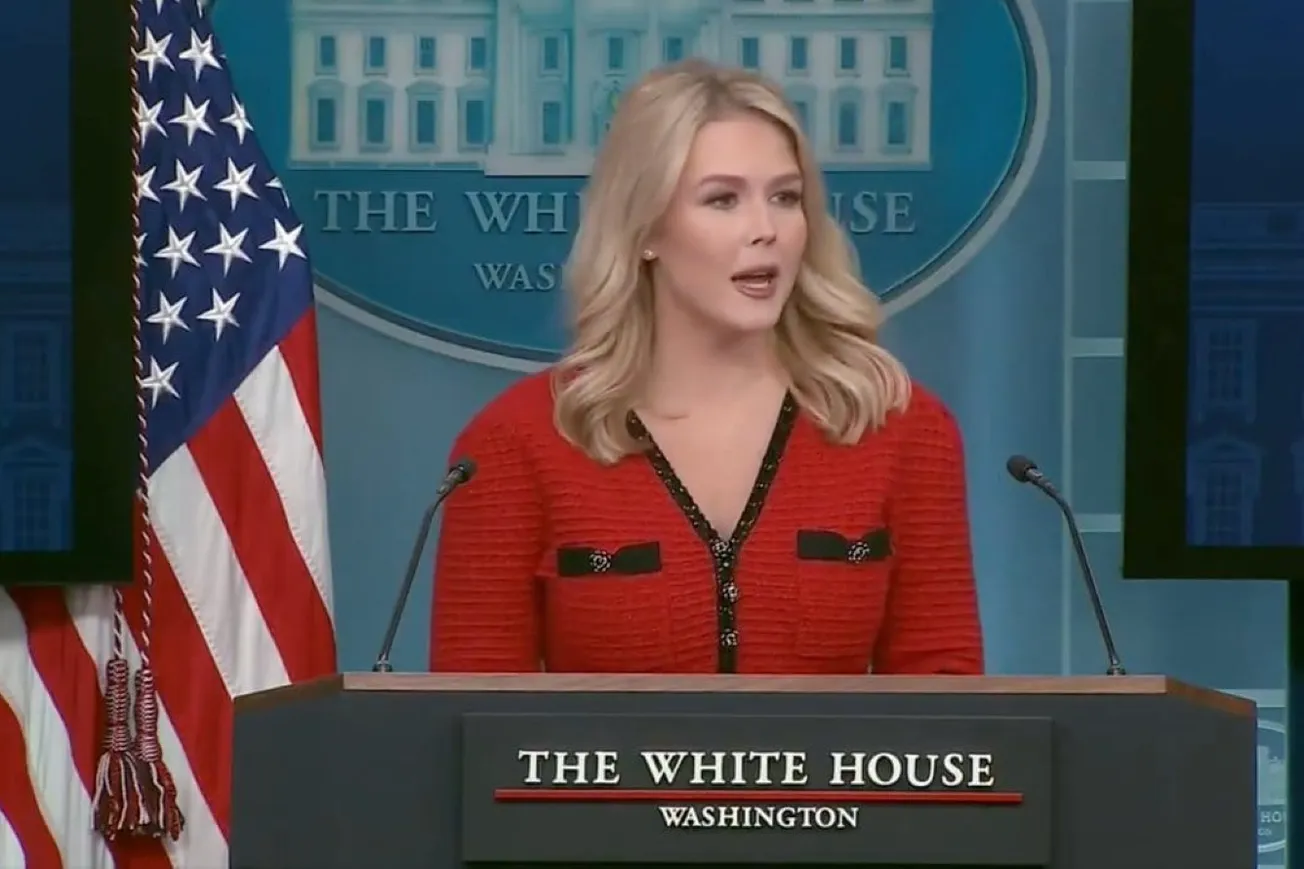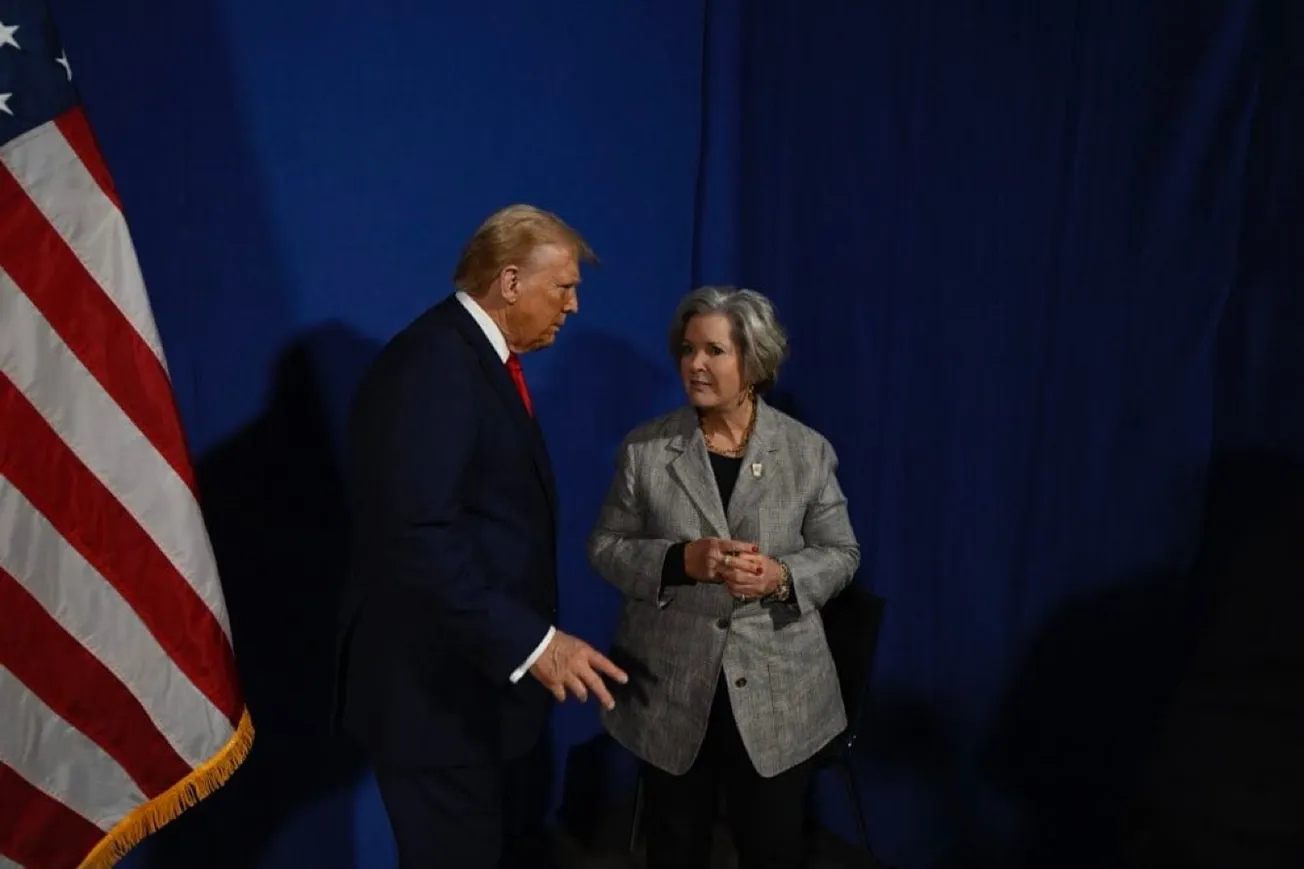The ink from President Trump's Sharpie pens had not even dried on the dozens of Executive Orders (EOs) he signed after taking the oath of office as America's 47th president when attorneys general from 22 liberal states, joined by the American Civil Liberties Union (ACLU), filed two separate court challenges to Trump's EO limiting birthright citizenship.
Readers will recall that six weeks ago, we had applauded President-elect Trump for touching the third rail in immigration politics. In an interview with Kirsten Welker of NBC News, he assured Americans that he would sign an EO regarding "anchor babies," wherein illegal immigrant women give birth on U.S. soil so that the babies would automatically qualify for United States citizenship on the strength of the 14th Amendment, which was passed in 1868.
Trump, like many MAGA Americans, knows that the Amendment's language is ambiguous enough to call for large-scale policy changes: "All persons born or naturalized in the United States, and subject to the jurisdiction thereof, are citizens of the United States and of the State wherein they reside."
Liberals argue that the qualifier "subject to the jurisdiction thereof" is irrelevant, which is why they omit it altogether when quoting the 14th Amendment (as Welker did during her interview with Trump) or gloss over those five words as if they were an inconvenient technicality.
Conservatives who want to deny birthright citizenship to everyone born in America argue that a mother who has no ties to the United States is not under American control and is actually under the jurisdiction of another country cannot benefit from the amendment’s privilege. They point out that the statute has respected this exception since 1868. For instance, a baby born to a French diplomat in Washington is deemed to be under French jurisdiction and, therefore, ineligible for United States citizenship by birth.
Trump, who ran on a campaign based on "Common Sense," understands that most Americans would agree with such a reading of the Amendment.
His Executive Order reads:
Among the categories of individuals born in the United States and not subject to the jurisdiction thereof, the privilege of United States citizenship does not automatically extend to persons born in the United States: (1) when that person's mother was unlawfully present in the United States and the father was not a United States citizen or lawful permanent resident at the time of said person's birth, or (2) when that person's mother's presence in the United States at the time of said person's birth was lawful but temporary (such as, but not limited to, visiting the United States under the auspices of the Visa Waiver Program or visiting on a student, work, or tourist visa) and the father was not a United States citizen or lawful permanent resident at the time of said person's birth.
Essentially, Trump defined those who did not qualify for birthright citizenship. A baby born to a mother who is in America illegally does not qualify. Even if a mother is in America legally but temporarily—such as an international student, a guest worker, or a tourist—the baby does not qualify. In each case, the exception would be when the father is a United States citizen or a permanent resident. The baby qualifies if the father’s jurisdiction applies, even if the mother’s does not.
The American voter on the street understands this commonsense interpretation. It was Trump's Common Sense reforms - banning DEI in federal hiring and restoring merit as the only standard for recruitment, requiring federal government employees to return to the office and give up Work-From-Home privileges like most Americans did after COVID-19, and revoking the security clearances of the 51 intelligence officers who knowingly lied regarding the Hunter Biden laptop and helped interfere in the 2020 election - that drew substantial support in the last election. Americans returned him to the White House in a Democratic rout not seen since Ronald Reagan's landslide victories in the 1980s.
Trump had promised Day 1 action on all these issues, and he delivered by signing dozens of EOs hours after taking the oath of office. But the liberal states, soundly defeated in the election, already had knives sharpened to attack the Birthright Citizenship EO, which would go into effect on Feb 20, 2025. They filed challenges in two liberal federal courts - Massachusetts and Western Washington - confident that sympathetic judges would block the order by issuing a nationwide injunction to prevent it from taking effect.
But liberals can no longer rely on corralling resistance against an EO like the relatively legally weak Muslim Ban that emerged from Trump's first presidency. Trump 2.0 is an example of discipline and organization, managed by veteran political operatives like Suzan Wiles and Stephen Miller. The language in the Trump EO is carefully written without any racial stereotypes, and all that Trump is doing is interpreting words in a statute, the explicit role of the executive branch under our Constitution. It is a clever approach that has the Left worried, as was evidenced by this story in the New York Times: "A New Fear for Undocumented Women: Will My Unborn Child Be a Citizen?"
We don't know what the future brings, but we could predict a roadmap. Once the federal courts issue an injunction, Pam Bondi at Justice will appeal the decision in an appeals court, perhaps directly to the District of Columbia Court of Appeals, the Administrative Court that adjudicates cases between the federal government and the states. The losing side will file an appeal to the Supreme Court, which currently has a 6-3 conservative majority. [Chief Justice John Roberts and Justice Amy Coney Barrett could be crucial votes here for the Left].
If the case does indeed reach the Supreme Court, we foresee two scenarios: The Court could let the Appeals Court's decision stand by refusing to rule on the case, or the Court could take the case on its merits. In the latter scenario, we foresee two possible outcomes.
First, the Court could interpret the five words subject to the jurisdiction thereof once and for all, where all parties must accept the decision as the law of the land. This is the outcome that President Trump is hoping for, especially if he wins the case.
Second, the Court could decide, following its ruling last June overturning the Chevron decision in the Loper Bright case, that the issue is too significant for courts to interpret and that Congress needs to weigh in. This would bring the issue full circle back to Congress.
If the GOP is still in the majority in both chambers, a bill to interpret those five words could be tabled. Suppose it passes both chambers (unlikely, given the slim majorities in the House) and Trump signs it into law, the 22 states that took action today will be at it again, challenging its constitutionality in federal court.
Congress could also pass a constitutional amendment requiring the approval of two-thirds of the House and Senate and three-quarters of the states. Given the Left's opposition, the amendment is unlikely to make it out of Capitol Hill.
Whatever the final outcome, Trump deserves credit for bringing this contentious 'third rail' issue to the forefront.









